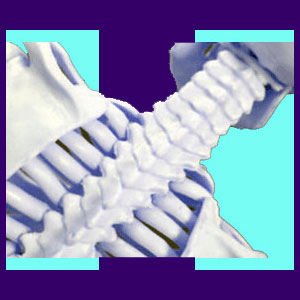
Degenerative disc disease therapy is the subject of much heated debate in the medical community. Some care providers consider DDD a painful disorder which requires aggressive treatment. Meanwhile, most doctors realize that degenerative disc disease is simply a normal and universal part of the aging process which is rarely solely responsible for serious or chronic back pain. Regardless of your personal view concerning the nature of DDD, it is important to analyze any potential therapy option in order to determine if the treatment meets the care requirements of the particular patient. This consideration is most important when that patient is you.
This discussion examines the reasons why therapy is rarely needed for degenerative disc disease, as well as the times when professional treatment is actually indicated.
Degenerative Disc Disease Therapy Facts
DDD is not a disease, despite its nomenclature. It is merely a term used to describe the usual and expected degenerative processes which act upon the intervertebral discs. The entire body is subject to the effects of age and the spine is no exception.
Some cases of DDD can be severe, deteriorating almost the entire disc structure. This type of condition may cause pain and symptoms for some length of time, but will usually resolve itself, even with no treatment given. It is crucial to understand that even the most extreme cases of DDD are not inherently symptom producing. Symptomatic treatments for DDD will not repair discs, nor restore any lost disc height. The only possible solutions for true DDD related pain are back surgery and nonsurgical spinal decompression.
The vast majority of patients who are diagnosed with DDD are actually suffering from some other structural or nonstructural condition. Some may actually be affected by psychological back pain which has been blamed on coincidental disc degeneration, while others may endure symptoms which stem from another spinal or non-spinal physical process.
Symptomatic DDD Therapy
Symptomatic treatments are therapies designed to improve the quality of life while living with a painful disorder. They do not do anything to improve the underlying condition and they will not provide a cure. The majority of therapy options commonly prescribed for DDD are considered symptomatic treatments.
While some of these treatments are very soothing and helpful to a suffering patient, others are problematic and can create more harm than good. This is especially true for treatment modalities which are physically addictive or therapies which enslave the patient into long-term programs without providing any cure at the end. Make sure to understand what you can expect from a particular treatment before agreeing to any extended therapy regimen.
Detailed information on particular therapy options for DDD can be found in our medical back pain treatment and complementary back pain treatment resource sections.
Degenerative Disc Disease Therapy Options
I was diagnosed with DDD in my late teens. I could not believe that my spine was crumbing at such a young age. I was prescribed a variety of treatments which did not make any sense to me, even before I knew anything at all about back pain. I understood that DDD meant that my discs were losing height and thinning out. I understood that this might cause bone on bone contact between the vertebrae. I did not understand how any of my treatments were going to do anything to stop this process or reverse it.
Now I realize that none of my pain was ever caused by DDD. Treatments for disc degeneration were ineffective because they were not directed at the proper cause of my pain. Even if the pain was caused by DDD, I would still be suffering today, since symptomatic treatment will never cure the condition. Make sure that you understand what your therapies are designed to do. Also, consider the fact that typical DDD is most likely not the cause of any of your pain. Learn the facts and make an informed choice. If you do not become proactive in your own care, then you might have no one to blame for your continuing pain but yourself.
Back Pain > Degenerative Disc Disease > Degenerative Disc Disease Therapy




